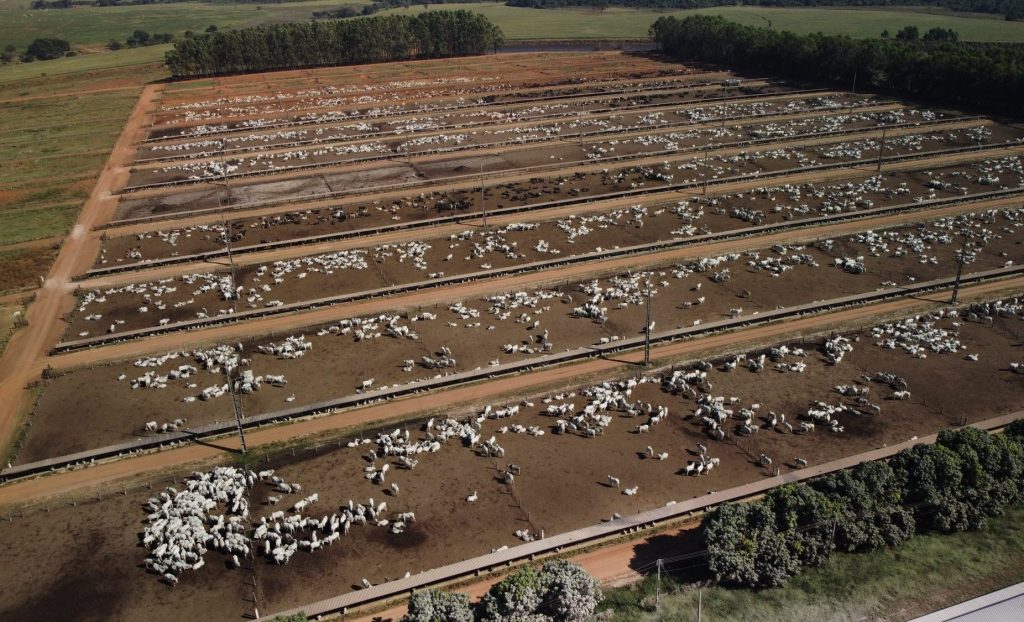Tyson, JBS cases mark new level of scrutiny of corporate greenwashing
The settlements send a message to the entire food industry: Climate marketing must be backed by credible plans and progress. Read More

- Tyson settled a suit filed by environmental groups; the JBS action was brought by New York Attorney General Letitia James.
- Neither company admitted wrongdoing, but both will revise their climate action claims.
- Future claims must be vetted by independent experts.
Tyson Foods has agreed to stop touting its “net-zero” by 2050 pledge on greenhouse gas emissions and its “climate-smart” beef initiatives as part of a settlement to end a greenwashing lawsuit.
The Tyson case marks the second greenwashing settlement for a major food producer this month, following JBS USA’s agreement to revise its pledge to achieve “net-zero” emissions by 2040 in a case brought by New York Attorney General Letitia James. The attorney general and environmental groups said the settlements send a message to the entire food industry: Climate marketing must be backed by credible plans and progress. Otherwise, companies risk attracting lawsuits for misleading consumers.
“The outcome makes clear that corporate climate pledges must be transparent, verifiable and rooted in real change,” said Caroline Leary, general counsel and chief operating officer at EWG, one of the environmental groups that settled with Tyson Foods on Nov. 17.
‘False and misleading’
Tyson Foods and JBS USA are the two largest meat companies in the world. Neither admitted wrongdoing.
A spokesperson for Tyson said the decision to settle was made “solely to avoid the expense and distraction.” Nikki Richardson, a spokesperson for JBS USA, said the company “remains driven to advance sustainable agriculture.”
In 2021, Tyson Foods promised to achieve net-zero greenhouse gas emissions by midcentury. About two years ago, the Springdale, Arkansas, company began promoting plans for “climate-smart” beef.
EWG in its lawsuit alleged those claims were “false and misleading” to consumers because Tyson Foods didn’t have a plan to substantially reduce emissions from its beef supply chain, which accounts for 85 percent of the company’s climate footprint.
In the settlement, Tyson disclosed that it invested more than $65 million to reduce greenhouse gas emissions relating to its beef products — a little over 0.1 percent of its $53 billion in revenue in 2024.
Tyson pledged to reduce Scope 1 and 2 emissions by 30 percent and Scope 3 emissions by 30 percent per ton of finished meat by 2030, compared to a 2016 baseline — targets validated by the Science-Based Targets initiative (SBTi). The company’s net-zero goal hasn’t been assessed.
By contrast, none of JBS’s climate goals are SBTi-validated. The company withdrew from the process in January 2024 — about three years after the Brazilian meatpacking conglomerate pledged net-zero emissions across its sprawling global supply chains, according to its settlement with New York.
The agreement outlines how JBS’s climate plans lack transparency and credibility, including the company’s failure to disclose how much of its emissions are attributable to land-use changes, such as deforestation. That is likely a significant source, given that beef production accounts for more than three-quarters of the Amazon’s destruction, according to WWF.
“JBS is a super emitter,” said Alex Wijeratna, senior director of investigations and law at Mighty Earth, which filed its own greenwashing lawsuit against JBS USA in the Superior Court of the District of Columbia. “There are estimates that JBS’s overall emissions are greater than all of Spain. The company slaughters 27 million cattle a day in 25 countries. There’s a lot of methane emitted from cattle.”
How Tyson and JBS will change their marketing
JBS USA, which sells meat under brands like Pilgrim’s Pride and Swift Beef, in its settlement with the New York AG agreed to present net-zero as a “goal” rather than a “pledge” or “commitment.” If the company touts steps toward reducing emissions, its marketing has to list specific actions.
Tyson Foods agreed to stop making “emission” and “net-zero” claims for five years. The company cannot introduce new ones unless they are “supported by expert analysis and verified facts” that the company and EWG both agree to.
EWG’s Leary said the analysis would need to be done by experts in emissions accounting who don’t have a financial stake in approving Tyson’s marketing, e.g., an academic institution or a research and consulting firm.
















